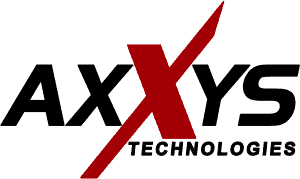Technology is no longer simply operational support for law firms. Cloud-based case management systems, automated workflows, and AI research tools help lawyers meet tight deadlines and manage the important details of their cases. Without the right IT solutions in place, inefficiencies, security risks, and operational bottlenecks can slow firms down. This impacts their ability to compete and deliver results to their clients.
Firms that lean into technology have a competitive edge. Those that rely on old systems and rules risk losing clients and opportunities to more agile competitors. This post explores how a range of modern IT solutions can help Dallas law firms thrive in a market ripe with opportunity.
Boosting Efficiency with Legal-Specific IT Solutions
Case Management and Document Automation
Old ways of managing documents, like filing by hand and using paper tracking, are slow and can easily lead to mistakes. Cloud-based case management systems store contracts, pleadings, and discovery materials in one place, allowing attorneys and staff to access the latest files in real time. Additionally, advanced search and indexing functions allow attorneys to retrieve case documents in seconds, eliminating the need to sift through physical files or navigate complex filing structures.
Automated document assembly software makes it easier to create standard legal forms. Streamlining this process reduces errors and gives attorneys more time to focus on legal strategy. These tools integrate with existing legal practice management systems such as Clio, MyCase, and NetDocuments, providing seamless workflows and enabling firms to generate contracts, court filings, and correspondence efficiently.
Secure and Remote Access for Lawyers on the Go
Legal professionals frequently work from courthouses, client offices, and their homes. Virtual desktops and cloud-based document management allow attorneys to reliably access their case files from any location and device while avoiding data breaches.
Endpoint security solutions protect confidential client data. This way, if devices are lost or stolen, the data remains safe. Remote wipe capabilities allow IT administrators to erase firm data from a device if it is lost, safeguarding client information from unauthorized use.
Additionally, a strong VPN, or “Virtual Private Network” can keep sensitive client data away from the prying eyes of cyber criminals. Multi-factor authentication (also known as “MFA”) requires users to take extra steps to verify their identity and further protects data from hackers. A combination of these tools reduces the risks associated with unauthorized access.
IT Support for Fast and Reliable Operations
Unplanned downtime or slow systems can delay case progress or contribute to missed court deadlines. Law firms benefit from 24/7 IT support, ensuring resolution of any technology-related issues before they impact client and case work. Dedicated helpdesk services provide rapid responses to software or connectivity issues, and hardware failures.
Managed IT services actively monitor systems, spotting and fixing problems before they cause disruptions. Automated system health checks analyze network performance for bottlenecks. Routine maintenance, such as operating system updates, patch deployments, and cybersecurity scans, further enhances system reliability.
Strengthening Cybersecurity and Compliance
Protecting Client Data from Cyber Threats
The treasure trove of sensitive data related to case work makes law firms prime targets for cybercriminals. Threats like ransomware, phishing scams, and unauthorized access can cause data breaches, resulting in serious legal issues. Endpoint protection platforms (EPPs) use artificial intelligence-driven threat detection to monitor for suspicious activity across all connected devices.
Firewalls, intrusion detection systems, and real-time monitoring tools work together to detect and neutralize cyber threats as soon as possible. Regular security assessments and penetration testing spot vulnerabilities. This helps security teams improve defenses before issues occur.
Compliance with Legal and Industry Regulations
North Texas law firms must follow the guidelines set by the American Bar Association (ABA) and Texas Bar Association. Non-compliance can result in disciplinary action, loss of client trust, and fines.
For example, encryption technologies can keep client data secure at all times. Managing access using role-based access controls (RBAC) ensures that only authorized personnel can view or edit case files.
Automated compliance tracking tools offer real-time reporting on data access logs, security incidents, and compliance. These solutions reduce administrative overhead while ensuring firms meet legal and ethical obligations.
Secure Email and Communication Tools
Standard email services lack the security measures necessary for transmitting confidential legal correspondence.. Secure email platforms employ end-to-end encryption to prevent data leaks and unauthorized viewing.
Client portals provide a secure and safe way to share files, notes, and documents. Firms can use specialized communication platforms designed for legal professionals, such as Microsoft 365 security features, to ensure confidential discussions remain private.
Leveraging IT for a Competitive Advantage
Data Analytics for Case Strategy and Business Growth
Data analytics tools help law firms track case performance, client satisfaction, and finances. By leveraging business intelligence platforms, firms can gain insights into which case types generate the most revenue and which legal strategies lead to favorable outcomes.
Predictive analytics enhances case strategy by identifying patterns in judicial decisions, helping attorneys anticipate opposing arguments and refine their approach. Additionally, automated billing analytics allow firms to track billable hours more accurately.
AI-Powered Legal Research and Document Review
AI tools like Westlaw Edge and ROSS Intelligence improve the speed and accuracy of legal research. These tools analyze case law, statutes, and legal precedents in seconds, reducing the time attorneys spend manually searching through databases.
Machine learning algorithms assist in contract analysis by identifying notable clauses, potential risks, and discrepancies. Automated document review minimizes human error, ensuring compliance with legal standards while expediting case preparation.
Scalable IT Solutions for Growing Law Firms
Cloud-based infrastructure provides scalable storage and computing power for growing law firms. This flexible IT strategy evolves with the needs of the business.
Co-managed IT services support firms with internal IT teams by providing additional expertise and resources. A well-structured IT roadmap empowers firms to make strategic technology investments, preventing inefficiencies and disruptions as they expand.
IT as a Strategic Advantage for Law Firms
Law firms that fail to modernize their tech infrastructure risk falling behind. Advanced IT solutions support efficiency, security, and confidence that your business is running smoothly and complying with all industry regulations.
Axxys Technologies specializes in delivering IT solutions tailored to the unique needs of legal professionals. Contact us today to discover how we can build a smarter, more resilient legal practice together.








